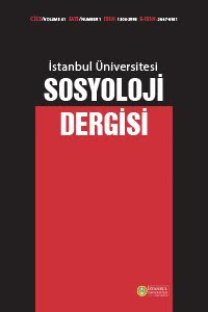Bir Yeniden Yorumlama Örneği: Ahmed Rıza’nın “Pozitivizm”i
Osmanlı modernleşmesini ve bu bağlamda pozitivizmin ithalini basit bir trans- fer olarak değerlendirmek, toplumsal süreçlerin mahiyeti konusunda eksik bir tasav- vuru işaret etmektedir. Bu makale, pozitivizmin bir kısım Osmanlı aydını tarafından temellük edilişini salt bir tesir-eser ilişkisi değil, bir teessür olarak kavramayı, tesir eden kadar tesiri alanın da bu süreçte etkin bir rol oynadığını göstermeyi hedeflemektedir. İmparatorluk için kurtarıcı bir reçete ve “devleti kurtarmak” amacına matuf olarak pozitivizmin ithal süreci, iki yönde işleyen bir “yeniden yorumlama” (reinterpretation) işlemine tabi görünmektedir. Pozitivizm, bir yandan yerel değerler (alıcı kültür) bağla- mında yeniden yorumlanıp Osmanlı kültürüyle uyumlu hale getirilmeye çalışılırken; diğer yandan Osmanlı-İslam tarihi ve düşüncesi, pozitivizm ışığında yeniden okun- maktadır. Bu işlemin baş aktörü, Osmanlı İttihat ve Terakki Cemiyeti liderlerinden Ahmed Rıza Bey (1859-1930)’dir. Makalede, “İnsanlık Dini”ne intisap eden Ahmed Rıza’nın pozitivizmi temellük etmesinin edilgen bir süreç olmadığı; pozitivizmi yeni- den yorumladığı; buna koşut olarak sahip olduğu tarihî, kültürel ve düşünsel mirası da pozitivizm perspektifinden nasıl kavramaya çalıştığı örneklerle açıklanmaktadır.
Anahtar Kelimeler:
Yeniden Yorumlama, Osmanlı İmparatorluğu, Modernleşme, Jön Türkler, Ahmed Rıza, Pozitivizm
-
Considering the Ottoman modernization and, in this regard, the import of positivism merely as a simple transfer transaction remarks upon a deficient imagination of the essence of social processes. This article claims that in this transaction, there is an active and significant role played by the importers themselves so that the transaction constitutes a bilateral “reinterpretation” process. This work delineates the conditions in which positivism was introduced in Turkey, focusing particularly on the life and ideas of Ahmed Rıza , one of the main leaders of the Young Turk movement and an active member of the Société positiviste, as well as the future president of the Ottoman Parliament. In this article, based on examples, it is shown that Ahmed Rıza who had converted to “Religion of Humanity” appropriated positivism not in a passive process but in an active one in which he reconsidered and revised positivism, and also reviewed his own historical, cultural, and intellectual background from positivist perspective
Keywords:
Reinterpretation, Ottoman Empire, Modernization, Young Turks, Ahmed Rıza, Positivism,
- ISSN: 1304-2998
- Başlangıç: 2020
- Yayıncı: İstanbul Üniv. Edebiyat Fak. Sosyoloji Böl.
Sayıdaki Diğer Makaleler
M[ösyö] Giddings’in İçtimaiyatı: “Terakki”yi Nasıl Telakki Ediyor?
Scientific Production and Impact Analyses of Sociometry Field
Kıymet Hükümleri, Şeniyet Hükümleri
Meşrutiyet’in Evrimci Dergisi: Ulûm-ı İktisadiye ve İçtimaiye Mecmuası
Sistem ve/veya Eleştiri: Mehmet İzzet’in Sosyoloji Anlayışı
Türkiye’de Kamunun ve STK’ların Sosyal Yardım Uygulamaları: Yeni Eğilimler ve İhtiyaçlar
